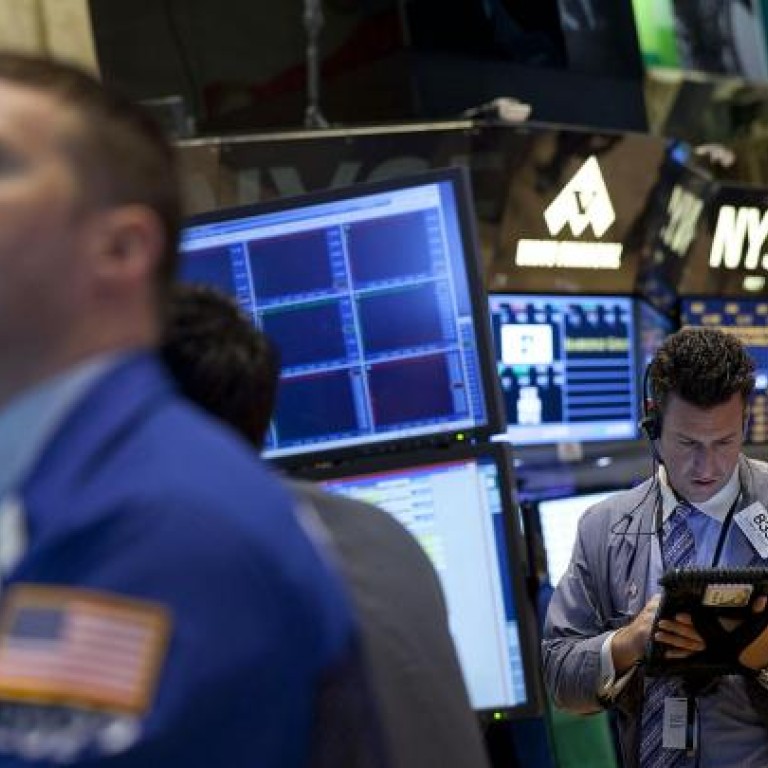
2012: How Wall Street got it wrong
Wall Street, large banks and even illustrious investors failed to anticipate how government actions would influence markets during 2012
From hedge fund manager John Paulson's call for a collapse in Europe to Morgan Stanley's warning that US stocks would decline, Wall Street got little right in its prognosis for the year just ended.

All of them proved wrong last year and investors would have done better listening to Goldman Sachs' chief executive Lloyd Blankfein, who said the real risk was being too pessimistic.
The ill-timed advice shows that even the largest banks and most-successful investors failed to anticipate how government actions would influence markets.
Unprecedented central bank stimulus in the US and Europe sparked a 16 per cent gain in the S&P 500 including dividends, led to a 23 per cent drop in the Chicago Board Options Exchange Volatility Index, paid investors in Greek debt 78 per cent and gave Treasuries a 2.2 per cent return even after Warren Buffett called bonds "dangerous".
"They paid too much attention to the fear du jour," said Jeffrey Saut, the chief investment strategist at Raymond James & Associates in Florida.
"They were worrying about a dysfunctional government in America. They were worried about the euro quake and the implosion of Greece and Portugal. Instead of looking at what's going on around them, they were letting these macro events cause fear to creep into the equation."
The market value of global equities increased by about US$6.5 trillion last year as the Morgan Stanley Capital International (MSCI) All Country World Index returned 17 per cent including dividends. The Bank of America Merrill Lynch Global Sovereign Broad Market Plus Index of government debt returned 4.5 per cent.
Money managers who aim to beat markets lagged behind instead. More than 65 per cent of mutual funds benchmarked to the S&P 500 trailed the gauge last year. The 50 stocks in the S&P 500 with the lowest analyst ratings at the end of 2011 posted an average return of 23 per cent, outperforming the index by 7 percentage points.
Blankfein was more prescient. "I tend to be a little more positive than what I'm hearing from other people," the 58-year-old chief executive said last April. "One of the big risks that people have to contemplate is that things go right."
Ten-year Treasury yields have climbed 0.52 percentage point from a July low to 1.91 per cent, while the so-called VIX index of volatility is up 8.3 per cent from last year's nadir.
Greece's economy will contract 4 per cent this year, the International Monetary Fund predicted in October, as euro membership prevents the country from boosting exports with a weaker currency.
Paulson, the founder of New York-based Paulson & Co, told clients in April he was wagering against European sovereign bonds and buying credit-default swaps on the region's debt.
The contracts insure against default and increase in value when investor perceptions of the borrower's creditworthiness decline. In February Paulson said the euro was "structurally flawed" and would fall apart.
Citigroup economists led by Willem Buiter in London said in February the possibility that Greece would leave the euro within 18 months had increased to 50 per cent from between 25 per cent to 30 per cent. They raised the risk to 75 per cent in May and by July were citing a 90 per cent chance of departure, writing that their "assumption" was an exit by January 1.
Greek bonds surged the most worldwide and the country stayed in the euro as the European Central Bank pledged a bigger rescue effort, German Chancellor Dr Angela Merkel softened her stance on aid and Greek Prime Minister Antonis Samaras delivered on austerity commitments in Athens.
Money managers who bet against the conviction of European leaders to hold together the 17-nation currency union missed out on some of the best investment opportunities as the euro strengthened 9.4 per cent from a July 24 low against the dollar.
Germany's DAX Index of shares returned 29 per cent for the year and credit-default swaps on Portugal dropped 644 basis points to 449.
Adam Parker, the US equity strategist at Morgan Stanley, predicted the S&P 500 would fall 7.2 per cent to 1,167 points last year. Stocks rose as Federal Reserve decisions to keep benchmark interest rates at record lows while buying more than US$80 billion a month of mortgages and Treasuries boosted confidence in the economy.

